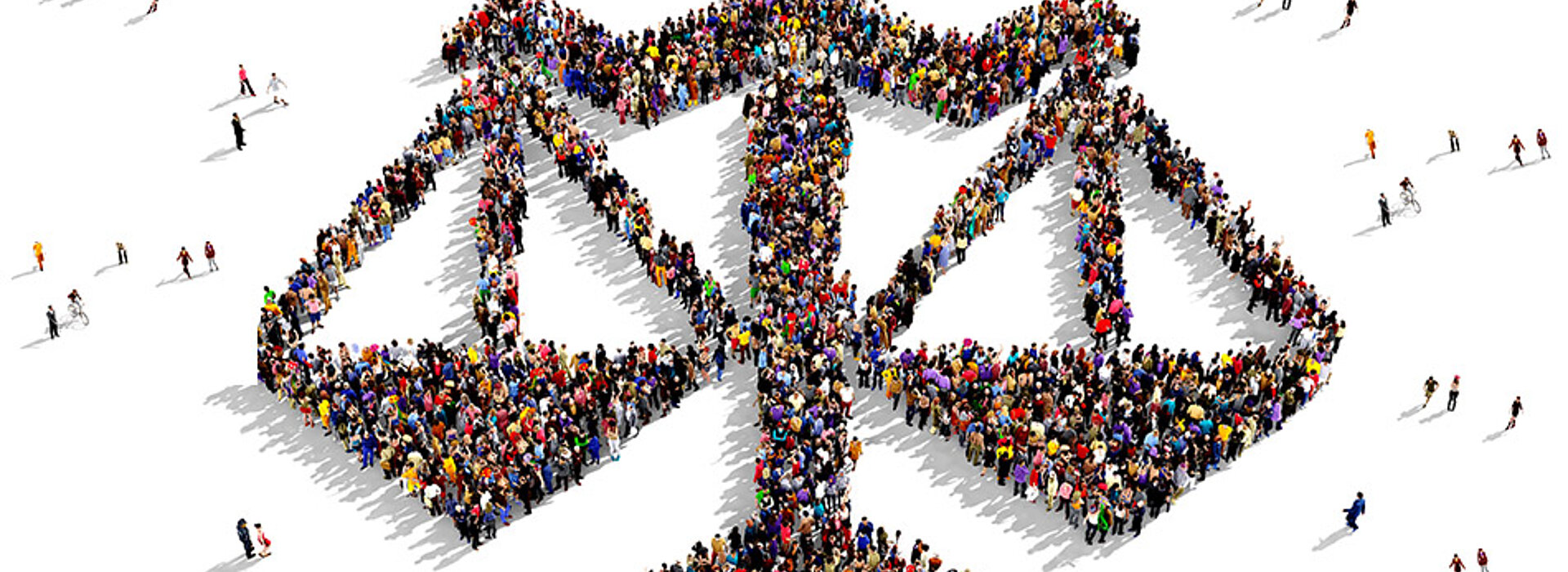The world watched, perplexed, on May 25 the cruel murder of George Floyd during a highly controversial police approach in the city of Minneapolis, Minnesota, United States. Officer Derek Chauvin, on duty in the same city, knelt on Floyd's neck for nearly seven minutes while he was lying face down on the floor. Since then, several protests have been organized across the country in response to the event.
These protests raised important issues such as: abuse of authority, role of the state, situation of marginalized populations and structural racism and, needless to say, that several analyzes of the event were broadcast in the media and in the academic environment. Somehow, most of us are looking for a way to end and prevent unfortunate events like this from happening again. After all, it is at the heart of the values of free and democratic Western society, the creation and maintenance of a space where each human being has its value and its individuality recognized and respected.
However, despite the fact that most of us are looking for solutions to these problems, for some reason we forget that situations like the one experienced by George Floyd are ultimately a gross violation of human rights. This violation occurs partly due to our own difficulty in creating more inclusive institutions, and partly due to the lack of freedom and economic resources to carry on the construction of a more prosperous society.
The Brazilian constituents were very generous in putting in the text of the 1988 Federal Constitution, several devices for the protection of human rights, among which stand out: social rights, education, health, work, leisure, security, social security, maternity and child protection, and also assistance to the destitute. It is important to note that no one argues that they are elements of the first magnitude, all of which are fundamental to the full development of human potential, but before consecrating them as human rights in the constitutional text, the constituent should have been concerned with pointing out who and how to will pay for them.
We know that the main source of revenue for the State is taxation. Thus, for the guarantee of human rights to be effective - from the state point of view - it is necessary to tax, centralize and plan more. It would have been a perfect plan, had it not been so ineffective and perverse in recent years.
When the State pays more - directly or indirectly - it burdens the entire productive and consumption chain of the economy, in a way that affects all citizens and harms precisely the most needy, who start to enjoy fewer jobs and consumption options smaller and smaller, as the State tries to reverse part of the collection to safeguard the applicability of the minimum social services.
In addition to the monetary weight of a state structure that supposedly aims to ensure rights, there is also the risk of capture of the public machinery by the most diverse political agents, who in the end end up working for the benefit of only a few closer groups and will try at all costs to consolidate the their political power. In this scenario, an elite ends up being formed and people like George Floyd start to have no chance against the political-cultural status.
In this sense, when we talk about economic freedom, we necessarily refer to a scenario of freedom and political, economic and social emancipation, where the size of the government and its spending are reduced to the minimum possible, the currency is solid, inflation is controlled, all limits and fees to international trade are abolished, regulation should always be aimed at protecting free competition and, finally, where the State serves as the absolute guarantor of property rights, with the premise that self-ownership is the first and most sacred property right, from which all others derive. In this scenario, slavery, objectification of the human being and elitism will have no space.
It may seem contradictory that reducing the size of the state and promoting liberalizing measures are effective actions to protect human rights, but when crossing the numbers in the Freedom in the World ranking prepared by Freedom House, which consider the system protection of civil and political freedoms, and the Economic Freedom ranking prepared by the Fraser Institute, brought to Brazil by the Mackenzie Presbyterian University and which groups variables such as state size, monetary stability, regulation and commercial and international freedom, we realize that of the 20 countries with better placement, with respect to human rights, more than half of them are also among the 20 freest economies in the world. Countries like New Zealand, Finland, the Netherlands, the United Kingdom, Luxembourg, Sweden, Norway, Denmark, Australia, Ireland, Switzerland and Japan are champions in economic freedom and also in human rights.
It is interesting to note that, in countries where there is precarious protection of human rights, there are almost always very low levels of economic freedom. Countries such as Saudi Arabia, China, North Korea, Libya, Syria, Sudan and Venezuela represent the countries with the worst positions in both rankings.
It is evident that more studies need to be done in order to be able to ascertain with precision the existence of correlation and causality between the data of both rankings. However, an unpretentious look at the numbers reminds us of what the Nobel Prize winner in Economics, Friederich Hayek, wrote a long time ago when he said that in controlling this economy, the State would be controlling the means by which the individual resorts to achieve its goals. . In this way, the individual's freedom to achieve his or her wishes would be partly subordinated to the State and, consequently, the individual freedom of society is reduced as a whole, creating an environment conducive to violations, such as that suffered by the American George Floyd.
![Instituto Presbiteriano Mackenzie [Instituto Presbiteriano Mackenzie]](/fileadmin/CONFIGURACOES/DEFAULT_21/Resources/Public/Template/img/logo/mackenzie_w.svg)
